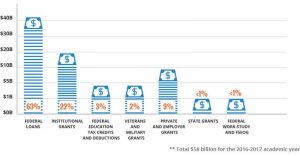
By Eliot Van Buskirk December 08, 2008 | 11:55:27 AM

U.S. universities are getting a glimpse at a plan that would build a small music-royalty fee into the tuition payments they receive from students. If successful, the model — proposed by digital music strategist Jim Griffin on behalf of Warner Music Group — could be expanded to make ISPs the collector of such micro-payments, eliminating some of the most irksome and contentious issues dividing the music industry and its customers.
An industry source told Wired.com that the independent nonprofit organization that would collect funds from universities and ISPs and disburse them to copyright holders will be called Choruss and that three of the four major labels have signed on, with Universal the remaining holdout. A simple whois lookup revealed that Griffin’s OneHouse Digital registered the Choruss.com domain in August.
Nonprofit technology advocate Educause is shopping a version of the unlimited music plan on behalf of Warner and the other major labels to several high-profile American universities including Cornell, Columbia and the University of Chicago (see slideshow). Although talks are in the early stages, they could lead to ISP-level music licenses offered to the general public.
According to slides in the presentation, which was created by of Mark Luker of Educause on behalf of Warner Music Group and refers universities to Griffin, the program’s goal is to allow university students to “access and use music any way they want to” while “generat[ing] fair returns to content owners.”
In return for a university paying fees to Choruss, its students would be able to continue downloading as they have been — bit torrent, Limewire and so on — without fear of legal reprisal. Unlike previous plans that require the use of onerous digital rights management, this one would allow students to download music in the unprotected formats they prefer, using the hardware, software and networks of their choice.
Choruss, an independent organization that would not afford Warner preferential treatment despite its role in the organization’s creation, according to our source, would distribute the funds to all relevant copyright holders including indie bands and labels.
The major labels have been slow to embrace digital music distribution in a way that makes sense to most music fans. Even though they all do business through iTunes and other digital vendors, they still require per-unit payments for downloads and heavy DRM for subscriptions. Many experts believe the original Napster represented a major opportunity for the labels to monetize file sharing in a manner similar to the way performance royalties are collected from restaurants or radio stations and avoid further alienating their customers by hauling them into court.
The proposed unlimited music service, as late in coming as it is, could make more sense to both labels and fans than the current system of download-and-sue, and it would allow for edge-of-network licenses for mashups, playlists and so on, with no DRM. As long as the system is priced fairly — and from what we’ve heard, the monthly per-student price would be south of $5 per month — it could provide a blueprint for larger ISP-level music sharing licensing. At this point, universities are still assessing the plan.
“Cornell is participating with the other universities in discussions to try to understand the Warner Music Group proposal,” a university spokesman told Wired.com. Techdirt’s source said the slideshow was shown at Columbia, Cornell, MIT, Penn State, Stanford, University of California at Berkeley, University of Chicago, University of Colorado, University of Michigan, University of Washington and University of Virginia.
Watchdog organization the Electronic Freedom Foundation supports the plan, lending it more credence, and Warner confirmed that it is seeking alternatives to the litigation-based approach at the schools’ behest.
“Of course, we are actively engaged with universities and other parties to seek a constructive resolution to a complex issue — how to assure artists appropriate compensation while enabling the widespread dissemination of their work among fans,” a Warner Music Group spokesman responded to the presentation’s publication on Techdirt.
“Therefore, we are undertaking an effort to develop new voluntary business models that seek something other than — and we believe, better than — a litigation-based approach. This is exactly the type of solution that several universities and their associations have been asking for.”
A Wired.com poll showed that approximately 70 percent of readers would pay $10/month for legal access to all of the music on the internet, and we understand that Choruss would call for a significantly lower fees than that. Its detractors might be underestimating the consumer appeal of an inexpensive, unlimited and unrestricted music network.






























